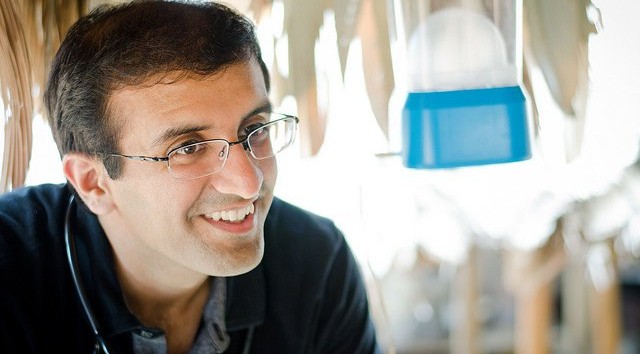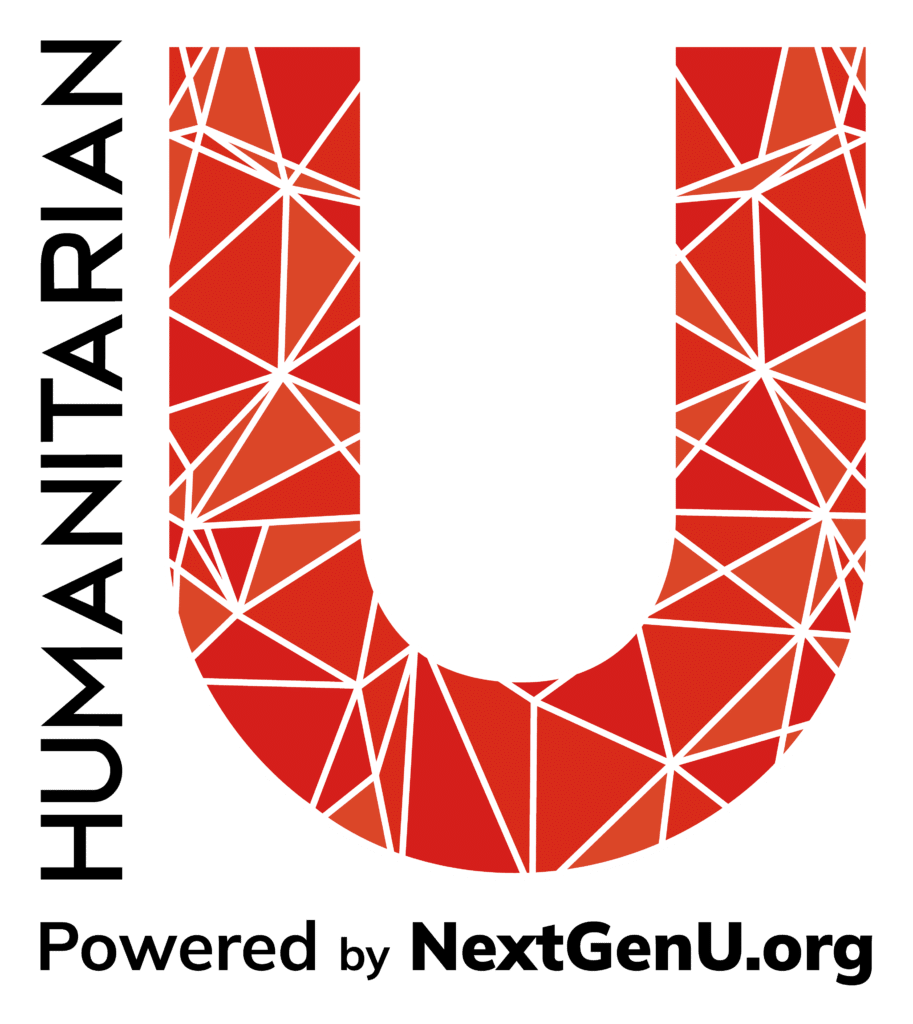Dr. Raj Panjabi was nominated for Humanitarian U’s December Humanitarian Leader of the Month. He co-founded Last Mile Health, an organisation that is committed to bringing primary health services to the most remote villages of Liberia. Read our interview with Raj below to learn more about his work in Liberia’s last mile.
What motivated you to return to Liberia and begin working with the Ministry of Health?
I had the privilege of being born in Liberia. However when I was 9, civil war forced my family to flee and we were resettled in North Carolina. I never forgot those I left behind. When I was 24, I had the chance to return as a medical student and what I found the health system to be utterly devastated. Only 50 doctors remained to treat a population of 4 million. This meant that you fell sick in a city, you stood a chance of accessing care. But if you fell sick in a rural, remote community – hours or even days from the nearest health center – you would die of a preventable disease.
After working with the Ministry of Health in rural areas, I decided to found Last Mile Health in 2007 with a group of American health workers and Liberian civil war survivors. We began Liberia’s first rural public HIV program treating patients in a gutted closet in a war-torn building in Zwedru, Liberia with only $6,000 in seed money. From there, our growing team realized the greatest needs were in Liberia’s last mile, where people in remote communities couldn’t access health care due to distance. Our solution was to create a new workforce of community health professionals by recruiting, training, equipping, managing, and employing community members to provide health care in their own villages and then link them to the local primary health system.
How has the Last Mile impacted the local population? How receptive has the local populations been towards the Community Health Workers?
In the past 9 years, Last Mile Health has trained nurses, mid-level clinicians and community health workers to deliver care in Liberia’s last mile, in partnership with the government. Over the past year, we deployed 300 community health professionals to treat 50,000 patients. Since 2012, Last Mile Health’s community health professionals carried out over 100,000 patient visits, including treatment of nearly 22,000 cases of malaria, pneumonia, and diarrhea in children in the past year. In our pilot site, clinic-based maternal deliveries rose from baseline of 56% in 2012 to 96% in 2016.
Not only are we transforming health outcomes in remote communities, but we are also providing employment opportunities. Community health workers are recruited directly from the communities they serve, and are paid for their work.
What have been the biggest problems or challenges you faced when launching Last Mile Health?
We believe that all people deserve access to health care, no matter where they live. Last Mile Health was founded to serve the most remote communities or ‘the last mile’, where people living in communities farthest from the reach of the health system are least likely to have access to care. Members of these communities face a triple bias: they are deemed not meaningful enough as consumers to garner private sector support, too expensive for non-profit support, and too difficult for public sector support.
In addition, we also face logistical and infrastructural challenges in reaching our patients. In the remote communities we serve, they lack airwaves, strong supply chains, and transportation access. We use the acronym L.A.S.T. to describe these obstacles to access. This means that we often need to build the systems ourselves to ensure we can reach our patients. For example, in Konobo in 2013, we partnered with a Liberian mobile operator to establish a cell network (i.e. Airwaves) where previously none existed to facilitate patient referrals. In Rivercess County in 2014 – 2015, we began using mobile phones to track medical Supplies and avoid drug stuck-outs. And in 2016, we purchased a boat, leveraging the sea to facilitate faster Transport of patients, supplies and workers to some of the hardest to reach places in Yarnee District. Through these innovative efforts, we’re breaking down barriers to bring high quality, lifesaving primary care to patients living in remote communities.
Is there any potential of expanding Last Mile’s reach beyond the borders of Liberia?
This past June, we passed a Strategic Plan that outlined our vision for the next three years. In that plan, we outlined our intention in supporting programs in new countries. Last Mile Health is an active member and has shared lessons learned in Liberia with the Financing Alliance for Health, Aspen’s Last Mile Incubator and USAID’s Integrating Community Health Program which are consortia working on strengthening community health systems in last mile communities in several countries. One billion people worldwide still lack access to healthcare because they are geographically isolated, and we believe our success in Liberia can inform programs in countries with similar challenges.
However first and foremost, we are committed to supporting the Liberia Ministry of Health and partners to launch a National Community Health Assistant Program. This historic program will serve the 1.2 million Liberians who live more than 5 kilometers from the nearest health center.
If the global community is serious about ensuring access to healthcare for the one billion people who lack access due to distance, we must invest in the health workers who can extend the health system to reach the most remote communities. We can’t do this work alone. We still have a long journey ahead, and our partners and supporters continue to play the most critical role in supporting Last Mile Health as we continue to push farther for patients living at the last mile.
What are you the most proud of in terms of your humanitarian career?
I am most proud of the community we work with to advance access to care in the most remote communities – from our staff and patients, to the Liberia Ministry of Health, to the private and public sector partners who truly make this work possible. I am proud we resist giving into cynicism. We cannot do this work alone, and need the talents and dedication of many to move the needle on the issue of equity and access in the last mile.
What is one piece of advice you would give to all existing and aspiring humanitarian workers around the world?
We, as humanitarian workers, and the people we serve are not defined by the crises that strike our lives. We are defined by how we respond. It’s also true that many acute crises (e.g. war, epidemics) are directly related to unaddressed “everyday” crises of inequality, poverty, and premature death. I’d argue that humanitarian workers (international AND local ones) are well positioned to address and highlight the “everyday” crisis – if they choose to.


